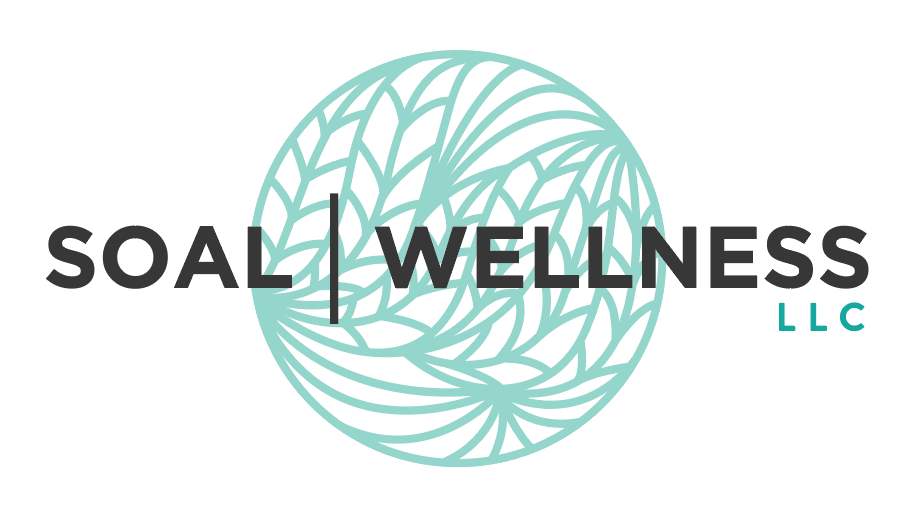You don’t need a health and wellness expert to tell you that cardiovascular exercise has countless benefits for your physical and mental well-being.
Too often though I’ve found that my clients are stuck in the mindset that they have to spend hours running or doing high-intensity cardio to make a difference in their physique and overall health. That’s simply not the case. I’m here to tell you that the secret to health and longevity is: as easy as walking.
Health and Longevity? It’s As Easy As Walking
My mission at Soal Wellness has always been to help both men and women live their absolute best life, with a focus on nutrition, lifestyle, and mindset. I know that so many of our clients are genuinely busy people who wear so many hats and have countless obligations, and I know that not everyone has the ability to spend hours in the gym everyday. And just like when it comes to nutrition and our “fear no food” belief, we don’t want you to spend hours in the gym to achieve your goals! Life should be about balance, and you can achieve your wellness goals and live a long, healthy life with simple changes to your routine. When it comes to moving your body more, making a commitment to walking regularly can have a profound impact on your health!
- Physical Benefits of Walking: Regular walking can lead to improved cardiovascular health by helping to lower blood pressure and cholesterol levels, increase circulation, improve lung capacity, all of which can help reduce the risk of heart disease and stroke. It also helps build muscle strength in the legs and core, leading to improved balance and flexibility. Finally, studies have shown that regular bouts of walking may help reduce weight gain over time by burning calories and aiding in digestion.
- Mental Benefits of Walking: Walking also provides numerous mental benefits, including increased focus, concentration, and clarity. According to some studies, taking a brisk walk can help clear your mind by reducing stress hormones like cortisol while increasing endorphins that boost your mood. In addition, regular walking has been linked with improved cognitive functioning such as better memory recall and problem-solving skills due to increased blood flow throughout the brain, which can also help reduce the chances of dementia. And of course, walking outdoors the sunshine can provide an opportunity for much-needed connection with nature. Studies have shown that spending time in nature helps reduce stress levels while improving self-esteem and overall happiness.
Walk Yourself to a Better, Longer Life: How to Get Started
So, how much should you be walking, and how fast? Well, first and foremost, we love how walking is an accessible form of exercise that requires no special equipment, no gym membership and no prior experience. It can be done almost anywhere with minimal planning or preparation and its low impact makes it suitable for people of all ages and fitness levels.
Recent studies (such as this one published in JAMA Internal Medicine) have shown that walking at a brisk pace at least 30 minutes per day can help you reap serious health benefits. According to the study, it doesn’t even have to be a consecutive 30 minutes, but can be in brief bursts here and there throughout your day. The key is to make it a brisk walk; a leisurely stroll won’t do. Obviously, everyone has different starting levels, and what feels like a fast pace for one person may not be fast for another so the relative effort is what matters most. To achieve a brisk pace is to walk at a manageable level of intensity while also feeling like you’re pushing the level of what’s comfortable for you.
In the study cited above, the researchers found that participants with the fastest pace, between 80 and 100 steps per minute, had more significant healthy outcomes than those who walked a similar number of steps at a slower pace. “In particular, the fastest walkers had a 35% lower risk of death, a 25% lower risk of developing heart disease or cancer, and a 30% lower risk of developing dementia than participants with a slower average pace. According to these findings, an individual that incorporates 2,400 to 3,000 brisk steps into their daily steps could significantly reduce their risk for developing heart disease, cancer, and dementia.”
Soal Wellness, A Revolutionary Wellness Practice
Ready to being your journey of a lifetime of health? Racking up the literal steps can obviously have significant benefits on your overall health and wellness, but there are countless other steps to take for you to truly live your best life. At Soal Wellness, we don’t believe in quick fixes of one-size-fits all solutions. Instead, we want to understand you as an individual and devise a custom plan based on your unique needs and goals. You can live the life you’ve always imagined, and we can help you get there. Contact us to get started.

